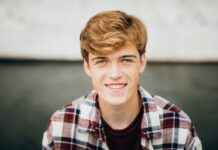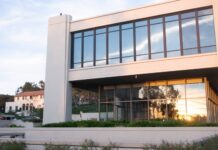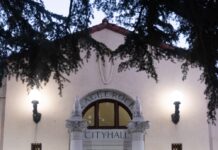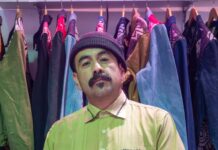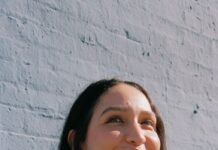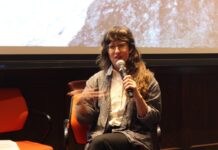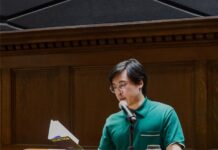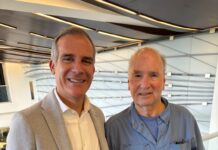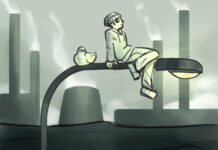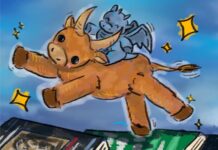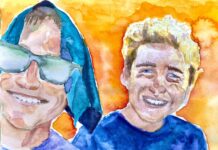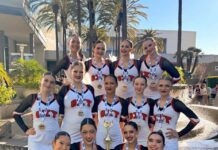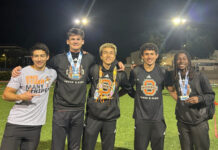
Every Thursday at noon, a few students can be found gathering together with books in hand at the Emmons Wellness Center. They are meeting for Claudia Ortega and Dr. Paloma Franco’s weekly Radical Self-Love Book Club, which began Sept. 26 and will run for six weeks. Following last fall’s book club, this year students read “The Body is Not An Apology: The Power of Radical Self-Love” by Sonya Renee Taylor.
“[The book] takes a look into what systems of oppression are out there that create and thrive in the discontent of our bodies,” Franco said.
According to Franco, the book touches on themes of oppression, specifically the “-obias and -isms” in our world, and how rejecting negative thoughts with love can fight such oppressions.
“One of the themes is radical self-love and how it starts with us, and dismantling our ideas about bodies,” Franco said. “That has a ripple effect on people around us, like our family, friends [and] larger systems. It starts with one, and it continues.”
The format of the meeting is generally open discussion, though sometimes conversations are facilitated by the author’s own commentary in the book, Franco said.
“Sonya, the author, has reflections and questions throughout the book, they’re called ‘unapologetic inquiries,’” Franco said. “So there’s those and reflection portions [in the book], so it’s open-ended, and if there are spaces, we reflect on those questions.”
There are five chapters in the book, which Franco said allows the students to read, discuss and reflect on a new chapter each week. Franco said around six students have been attending over the past few weeks, and the group is focused on making a space for women-identifying and LGBTQIA2S+ students at Occidental.
“It’s wonderful to be able to have this space for students, where maybe they don’t have a space on campus to talk about this,” Franco said.

Anita Zachary, a visiting assistant professor in the college writing program, teaches courses on gender and sexuality, as well as white identity politics. She said that having intentional spaces for students like the book club is important on campus.
“Our body, which also encompasses our mind, needs to be affirmed, personally. Spaces for groups give the ability for people, who perhaps before coming to Oxy felt that they were unseen, to have a place where they can actually experience being seen and being affirmed by others,” Zachary said.
Zachary also said that the in-person aspect of the book club community is beneficial in a technologically-driven social environment.
“We just don’t have enough community as it is, in my view, in our modern age,” Zachary said. “Too much time is spent outside of relating to people, except for in technology.”
In her spring First Year Seminar, ‘Gender, Sexuality and the Politics of Pleasure,’ Zachary said students discuss similar themes around how bodies are treated in the world.
“We talk a lot about who in our society has the right to pleasure, which is specific to that course,” Zachary said. “But we look at all various ways in which society continues to marginalize and oppress others, not only in issues of race or gender, but in areas that we haven’t fully explored like disability, like sexuality.”
Zachary said that the themes present in the book and the discussion of these themes in a community can provide radical approaches to acceptance of oneself.
“Self-love, as the book describes, is probably the most important avenue in which you can begin to love and appreciate others,” Zachary said. “It takes some kind of experience coming to appreciate and love yourself, which gives you the ability to be empathetic and loving towards others.”
Project SAFE Program Coordinator & Survivor Advocate Stephani Candelaria said these spaces can help students form connections around difficult topics.
“Book clubs and other related spaces are such a resource, providing a platform for the voices of the historically marginalized to stretch and grow through discomfort, pain and trauma towards the realization of empowered well-being,” Candelaria said via email.
While Candelaria said phrases like ‘self-love’ and ‘body-positivity’ have become buzzwords in recent years, there is still work to be done.
“Unfortunately many folx still feel not only discomfort, but trauma around accessing their reality — whether due to the political climate, […] family pressures or other cultural norms,” Candelaria said via email. “It is crucial, therefore, that brave spaces are offered for the community, especially queer and BIPOC communities, to come together and explore topics of this nature together.”
Contact Mollie Barnes at mbarnes@oxy.edu
![]()


